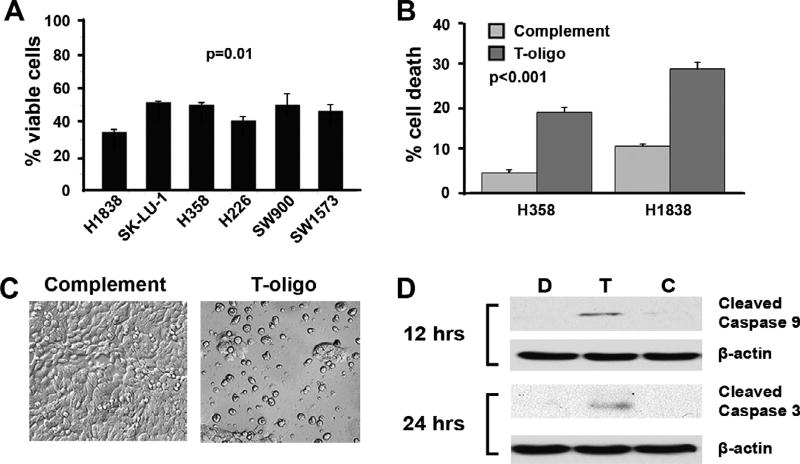Fig. 1.
Treatment with T-oligo decreases NSCLC cell proliferation and induces cell death. H1838, SK-LU-1 H358, H226, SW900, SW1573 NSCLC cells were treated with 40 µM T-oligo, complementary oligonucleotide, or diluent for 96 h and then evaluated for cellular proliferation after trypan blue exclusion. (A) All NSCLC cell lines exhibited a 40–50% decrease in the number of viable cells after treatment with T-oligo. (B) A 3-fold increase in cell death was seen in H1838 and 4-fold increase in H358 cells treated with Toligo for 96 h after staining with propidium iodide and analyses by FACS scan of cells using sub G0/G1 DNA compared to complementary oligonucleotide treated cells. Results are from representative experiments with a significance of p < 0.001. (C) Images of H1838 cells treated with either T-oligo or complementary oligonucleotide show a decrease in cell survival after treatment with T-oligo for 96 h. (D) Activation of caspase 9 (20-fold increase) and 3 (4-fold increase) were seen in H1838 cells at 12 and 24 h, respectively, indicating that activation of a pro-apoptotic cascade had occurred in these cells.

